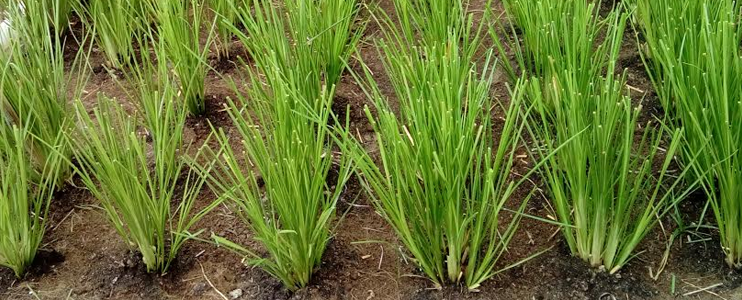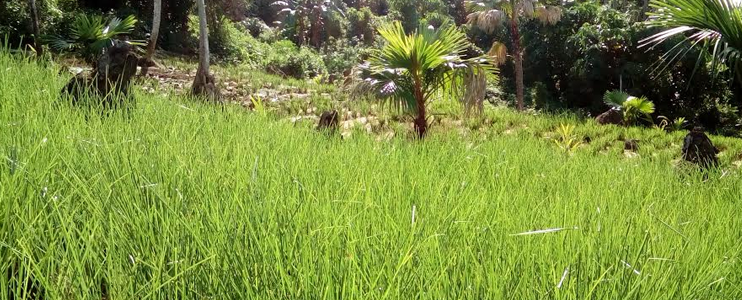Aside from being the leading producer of coco nets and coco logs in the Philippines, CNPC also grows vetiver grasses in its co-managed farms in the province of Quezon. To date, the environmental engineering company already has over a million slips of the in-demand tropical plant available for sale, and there are more slips of grasses ready for harvesting in the coming months.
Vetiver grass, also known also known as Chrysopogon Zizanioides, is an ancient plant which is quickly gaining popularity for its wide array of uses, most notably in erosion control. The roots of vetiver grass could grow up to three metres deep into the soil, absorbing water and keeping it compact, making the soil able to withstand the effects of natural erosion.
CNPC’s end-to-end environmental engineering solutions includes the planting of vetiver grasses after coco nets have been laid out on slopes and other parcels of land. After several months of tending to the slips, the grasses would have reached full maturity, their roots buried deep into the ground.
The Huffington Post also reported that vetiver can pull heavy metal residue out of the soil, including lead, arsenic and mercury. Toxic chemicals coming from wastewater, fertilizers and products used to maintain the pristine condition of golf courses and fields flow into bodies of water, destroying the delicate balance of the marine ecosystem. Planting vetiver grasses addresses these common issues.
While opportunities abound for the vetiver plant, the travails of growing it and maintaining the farms are a different story altogether. CNPC CEO Engr. Noel Florido spent months studying the nature of the plant and planning with the rest of his team the best way to use the lands in Quezon in order to support the growing, harvesting and transporting of vetiver grass.
“The plant takes about six months to one year to mature, so a lot of patience is needed in waiting before the plant becomes economically viable for our various projects,” said Mr. Noel. “Also, vetiver needs a lot of water to survive, so there must be a schedule for watering the plants everyday for the first few months after they have been planted, and maintaining them in the succeeding months.”
CNPC’s team of agriculturists and engineers have worked together to ensure the success of the vetiver endeavor. Now that they have a stable supply of millions of vetiver grasses and more plants are waiting to be harvested, CNPC is in a good position to meet the demand of their own operations, while at the same time providing vetiver to anyone who wants to use the plant to prevent soil erosion in their landscapes and detoxify the soil.


